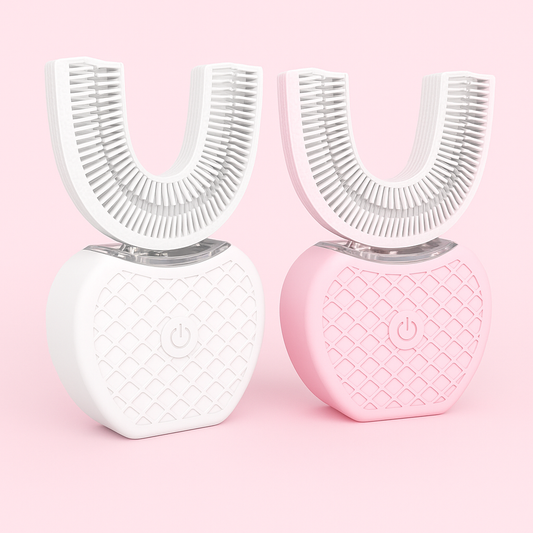Introduction
Maintaining optimal oral health is more important than ever as we move through 2025, a year marked by technological advancements and evolving dental practices. Good oral hygiene not only contributes to a beautiful smile but is also linked to overall health, affecting everything from heart health to diabetes control. In this comprehensive guide, we will explore the top 10 essential tips for achieving and maintaining excellent oral health in 2025.
1. Brush Your Teeth Twice Daily
Brushing your teeth at least twice a day is fundamental to keeping your mouth healthy. Make sure to use a fluoride toothpaste, which strengthens tooth enamel and helps prevent cavities. Here are some brushing techniques to keep in mind:
- Use the right technique: Hold your toothbrush at a 45-degree angle to your gums and use gentle, circular motions.
- Brush for at least two minutes: Ensure that you spend enough time on each quadrant of your mouth.
- Replace your toothbrush regularly: Switch to a new toothbrush or replace the head of an electric toothbrush every three months.
2. Floss Daily
Flossing is essential for removing food particles and plaque from between your teeth, areas that your toothbrush can't reach. Here’s how to floss effectively:
- Use the right amount of floss: Cut about 18 inches of dental floss.
- Wrap it around your fingers: Use your middle fingers to hold the floss, allowing your thumbs and index fingers to guide it between your teeth.
- Be gentle: Slide the floss gently between your teeth and curve it around each tooth in a C-shape.
3. Use Mouthwash
Incorporating an antimicrobial mouthwash into your daily routine can enhance your oral hygiene. A good mouthwash can help:
- Reduce plaque and gingivitis.
- Freshen your breath.
- Provide additional fluoride.
Choose a mouthwash that has the American Dental Association (ADA) Seal of Acceptance to ensure its effectiveness.
4. Stay Hydrated
Drinking plenty of water throughout the day helps wash away food particles and bacteria. Staying hydrated is crucial for saliva production, which plays a key role in maintaining oral health. Here are some tips for staying hydrated:
- Carry a water bottle: Keep a reusable water bottle with you to encourage regular sipping.
- Avoid sugary drinks: Replace sodas and sugary beverages with water or unsweetened alternatives.
5. Limit Sugary Foods and Drinks
Reducing your intake of sugary snacks and beverages can significantly lower your risk of tooth decay. Here are some strategies to help you limit sugar in your diet:
- Read labels: Check nutrition labels for added sugars in packaged foods.
- Choose healthier snacks: Opt for fruits, vegetables, nuts, and whole grains instead of candy and pastries.
- Use natural sweeteners: If you need to sweeten your food, consider using honey or stevia in moderation.
6. Schedule Regular Dental Checkups
Regular visits to the dentist are essential for early detection of oral health issues. Aim for at least two checkups a year for professional cleaning and examinations. During these visits:
- Ask questions: Use this time to ask your dentist about any concerns or new dental treatments.
- Discuss your oral hygiene routine: Share your brushing and flossing habits to receive personalized advice.
7. Consider a Smart Toothbrush
In 2025, smart toothbrushes equipped with sensors and apps can help monitor your brushing habits and provide feedback. Consider these features when choosing a smart toothbrush:
- Pressure sensors: These alert you if you’re brushing too hard, which can damage gums and enamel.
- Timer: Most smart toothbrushes come with a built-in timer to ensure you're brushing for the recommended two minutes.
- App connectivity: Some models sync with your smartphone to track your oral hygiene progress over time.
8. Don’t Ignore Gum Health
Healthy gums are essential for overall oral health. Pay attention to the following signs of gum disease:
- Red, swollen, or tender gums.
- Gums that bleed during brushing or flossing.
- Persistent bad breath.
If you notice any of these symptoms, consult your dentist promptly to address potential gum issues.
9. Use a Tongue Scraper
A tongue scraper is an effective tool for removing bacteria and food particles from the surface of your tongue. This can help reduce bad breath and contribute to a cleaner mouth. Here's how to use it:
- Gently scrape: Use a tongue scraper to gently scrape from the back of your tongue to the front.
- Rinse: Rinse the scraper after each use to remove debris.
- Incorporate it into your routine: Use a tongue scraper daily as part of your oral hygiene regimen.
10. Educate Yourself on Oral Health Innovations
Staying informed about new developments in oral health care is essential. In 2025, advancements may include:
- Tele-dentistry: Virtual consultations can provide convenience and accessibility for dental care.
- Biomimetic materials: New dental materials that mimic the properties of natural teeth are being developed for restorative treatments.
- Genetic testing: This could help identify individuals at high risk for dental diseases, allowing for proactive measures.
Conclusion
By following these 10 essential tips, you can maintain optimal oral health in 2025 and beyond. Remember that a proactive approach to oral hygiene will not only keep your smile bright but also contribute to your overall health. Prioritizing these practices can lead to a lifetime of healthy teeth and gums, ensuring you enjoy all the benefits of a radiant smile.


